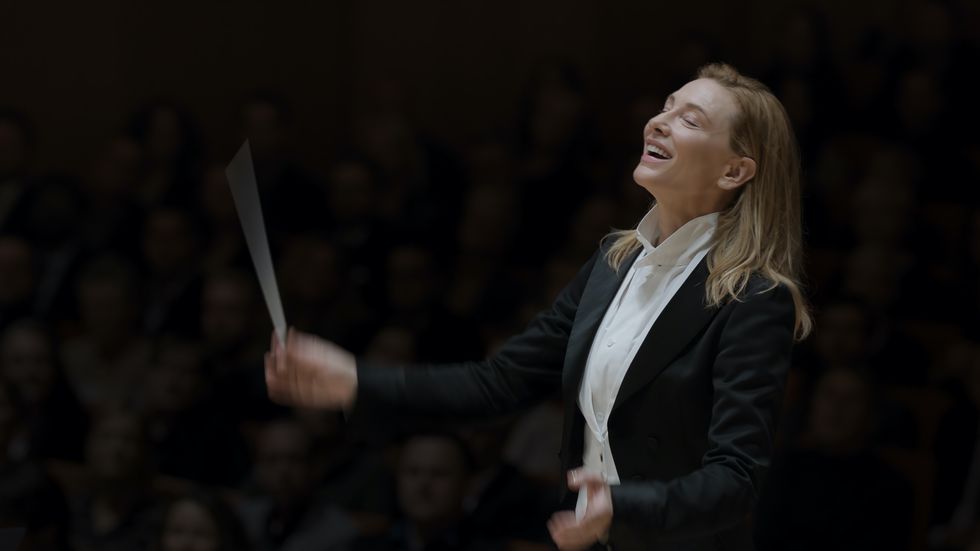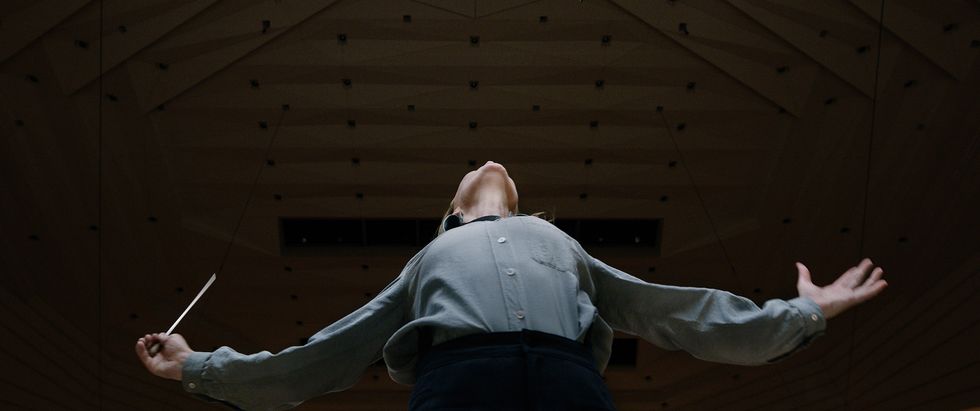It was of course inevitable — and perhaps it’s even darkly funny? — that there would be moves made to cancel the American writer-director Todd Field’s cancel-culture drama, Tár, even though it’s not really, or not primarily a “cancel-culture drama”, rather a highly specific and creepily compelling portrait of a world-famous conductor’s fall from grace.
Tár has been accused of sexism — why make a #MeToo movie in which the predator is a woman? — and racism, in its depiction of southeast Asian characters. Both charges seem not only misplaced but, in certain cases, hysterical. (The critic Amy Taubin decried “some of the most racist shit I have ever seen in a serious movie.” Clearly, she skipped The Birth of a Nation.) I don’t think any of these reactions directly reinforces the point Field is trying to make — I’m not sure he’s trying to make any point: an alien concept, perhaps, to the identity politicians — but they do, unwittingly, give context and credence to his film’s moment and milieu, in which the culture wars are fought in the offices of the great institutions of upper-middlebrow art, and where the greatest artists can fall victim, both rightly and wrongly, to the mob. (Field has not been cancelled, thankfully. But he could be forgiven for feeling unfairly traduced.)
Certainly Tár, and characters in Tár, ask the familiar questions of power and responsibility, genius and fallibility (should we venerate Schopenhauer, even though he once threw a woman down a flight of stairs?) but — again anathema to many, in our age of violent certainty — Field is not in the business of supplying easy answers. Maddeningly, no doubt, to the commentariat, he doesn’t take sides. He gives us point, and counterpoint. You must make of Tár, the film and its problematic protagonist, what you will.
Tár received an almost unanimous standing ovation from critics on its release last year — before the haters began sharpening their knives —and its star, Cate Blanchett, has rightly been scooping up armfuls of awards on the road to the Academy Awards, like a maestro gathering flowers at curtain call; she added the Bafta to her haul on Sunday evening. But the mis-readings, even when well-intentioned, have been manifold. In one particularly baffling essay, in the New York Review of Books, the novelist Zadie Smith appeared to insist that the film was principally a meditation on the generation gap between her own cohort, Gen X, to which Blanchett and her character also belong, and those who came after, the millennials. She also maintained that Tár lacks jokes, perhaps not realising, as a high-minded member of the cultural elite, that from first scene to last, Tár is a satire of the high-minded cultural elite — and a very amusing one. Confirmation that at least some of the film’s excellence is situated in its mirroring effect: you see what you want to see in it, even if the only thing you see is yourself.
Lydia Tár, the conductor played —brilliantly — by Blanchett, is not, contra numerous responses, a straightforward Art Monster. She is a flawed human being whose many weaknesses are indulged, as those of mega-celebrities tend to be, and then exposed, as they only sometimes are. We first meet her on stage at the New Yorker Festival, where she is being interviewed by the writer Adam Gopnik, playing himself — an experience Gopnik has written about for the current issue of Esquire. Gopnik’s intro is worshipful, his questions are obliging, Tár’s answers are delivered as if she’s doing everyone an incredible favour just by turning up to be praised, and the audience’s response is shamelessly craven. Clearly, the conductor is being set up for a fall. What begins as the sound of distant timpani — the understanding that Lydia Tár is pompous, an intellectual snob, occasionally cruel — develops slowly into a percussive cacophony as the walls close in and her past misdeeds return to destroy her.
From New York we travel, first class of course, to Berlin, where Tár rules semi-despotically over a symphony orchestra. She is haughty, glamorous, rich, feted, and chilly as a German winter. She wears the sharpest bespoke tailoring. She drives a bullet-grey electric Porsche. She shares a coldly beautiful apartment with her supporting-actress wife, who is first violin in her orchestra, and their haunted-looking seven-year-old daughter. She keeps another apartment, ostensibly to work in but also, perhaps, for extramarital assignations?
Tár, it becomes clear, has used her position of influence to seduce younger women, who she has later discarded, on at least one occasion with tragic results. She is insensitive to the feelings and opinions of those less gifted and powerful than herself: lesser conductors, musicians, students, her staff. In one indelible — and hilarious— scene, she aims her considerable venom at a young child. She is obviously guilty of some of the behaviour she is suspected of. Other accusations are exaggerated. Evidence has been manipulated, on both sides.
Perhaps all this talk of cancellation and culture wars has put potential audiences off. Very few bothered to see Tár at the cinema where, for all the hoopla, it has been a commercial failure. What has been ignored in much of the coverage of the film is that the questions of identity with which it is concerned are more profound than the reductive score-settling that online discourse typically allows. Lydia Tár (“real” name Linda) is, like all of us, a self-invention, but hers is an extreme construction, built on shaky ground and, politics aside, Field’s movie is a stylish and entertaining psychological thriller, in which we watch this apparently formidable woman slowly cracking up. Her weird, compulsive mannerisms and her superstitious rituals indicate an unquiet mind. She wakes from lurid nightmares to hear mysterious noises in the night. While out running she hears, or thinks she hears, the screams of a woman apparently being attacked. Following an acquaintance into an abandoned building, in a sequence straight out of a Gothic horror, she is frightened by the growling of a black dog. Is this stuff real, or is it all in her head? Is the whole film a terrible fever dream? Is she, like the dog, barking mad?
Blanchett is a remarkable actor because she can show you the mask and, at the same time, the woman behind the mask. We see Lydia Tár’s power and her vulnerability in the same face, at the same time. Who knows how Blanchett does this? It’s the same magic that Lydia Tár is capable of, an extraordinary gift that raises her above the rest of us: or does it?
Questions, we are told by Lydia Tár herself — as she womansplains the genius of JS Bach to a nervous young man who identifies, in perhaps Tár’s only false note, as a “BIPOC pansexual” — are more interesting than answers. This film asks plenty of the former and offers few of the latter. There is its triumph.
‘Tár’ is out in cinemas now














